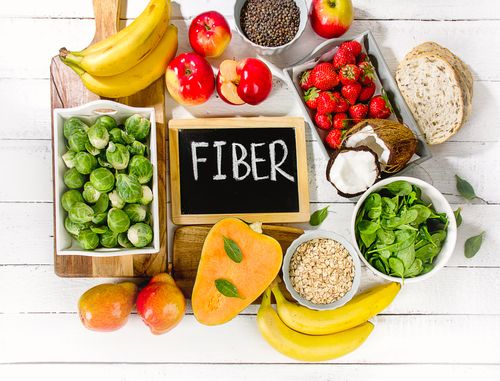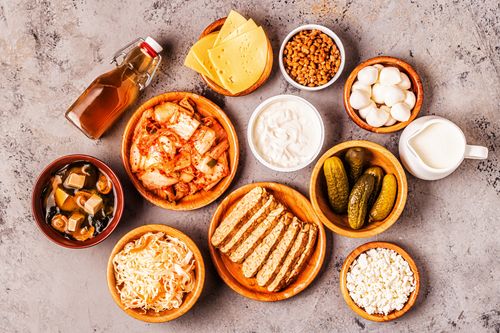9 Tips to Fast Safely and Maintain Immunity During the Global Pandemic

Alpa Momaya
April 23, 2021

Alpa Momaya
April 23, 2021
The holy month of Ramadan is here, where Muslims around the globe observe fasts to celebrate the month-long festival. Generally, Ramadan involves social and religious gatherings. Muslims along with their friends and families get together to pray, as well as, to break their fasts. However, amidst the global pandemic, Ramadan has taken on a new meaning where social gatherings have been banned, everyone has been confined to their homes, and maintaining a healthy immune system has become paramount in keeping oneself healthy while fasting.
Since, our immune system is responsible for warding off viruses and germs and protecting us against diseases, it is important to take measures and ensure that our immune system remains strong. According to recent studies, although the amount of necessary nutrition intake does not change, fasting Muslims need to ensure that the necessary nutrients are included in their Suhoor and Iftaar. Moreover, as fasting lasts for a long period, people tend to prefer sweet foods and drinks which reduces the opportunity in fulfilling the nutritional intake needed by the immune system. Therefore, one must follow a healthy and balanced diet that is packed with enough vitamins and minerals for they tend to remain in the body for a long period.
In addition, here are a few tips that will help you maintain a healthy immune system while fasting during Ramadan.

Maintaining fluid levels during the season of Ramadan is very important mainly due to the long hours of fasting and high temperatures. Water helps maintain the balance of electrolytes in the body and it is necessary for the absorption of many nutrients. Therefore, drinking at least two cups of water during Suhoor and spreading out two liters of water between Iftaar and Suhoor is important. This way you not only keep your body hydrated and prepared for the rest of the day but you also naturally eliminate toxins and other bacteria that may cause infections.

In general people sleep during the night for six-eight hours, however, this is not possible during Ramadan. Trying to make up for the lost sleep is key to maintaining health and wellbeing during this period. Therefore, try going to bed at 11 p.m post Iftaar and then wake up at 3.30 a.m for Suhoor and Fajr, and then one can return to sleep at 6 a.m for two hours. This routine may require you to sacrifice or reduce spending time with family or going about other activities, but your body will surely thank you for ensuring enough sleep. Following such routines not only strengthens your immune system but also makes Ramadan fasting a healthy and enjoyable experience.

During fasting, one is more prone to a slowed metabolism as well as muscle tissue breakdown. To prevent this, eating a variety of nutrient-rich foods during the early morning time and evening is cardinal. Consuming more vegetables, fruits, nuts, whole grains, legumes, lentils, and protein-rich foods not only keeps you full for longer but also ensures your blood sugar levels are intact. Moreover, Choosing healthy foods over processed, and packaged foods help in keeping cells active and healthy, thereby providing the body with enough nutrients required to fight infections and build immunity.

Consuming high fiber and whole-grain foods are recommended during Suhoor as it promotes better satiety, improved lipid levels, and bowel function. Therefore, vitamin B, A, C, E, and D fruits and vegetables should be added to your diet. However, it has been advised by several nutritionists to avoid carbs and fatty foods (fried or processed) during Iftaar. This is because they not only contribute to weight gain but also cause acidity and indigestion. Nevertheless, our body still requires fats for hormone production, maintenance of cell membrane health and absorption of vitamins. So, the key is to add healthy fats and carbs such as eggs, avocado, flaxseed, nuts, and meat to your diet. This way you stay healthy, keep your immune system top-notch, and are prepared for Ramadan fasting.

Fermented foods such as yogurt, tempeh, and kefir destroy “bad” bacteria and reinforce “good” ones. These acidic byproducts protect the intestines against “harmful” bacteria and other invasive microorganisms. Apart from protecting us, these foods also improve digestibility and nutrient absorption. “Good” bacteria also activate the synthesis of certain vitamins in the digestive tract, creating an internal nutrient factory. Most importantly, fermented foods boost the immune system and prevent us from diarrhea, infections (salmonella), and other digestive disorders that lead to intestinal and respiratory disorders, and allergies. So, this Ramadan, do not shy away from adding these foods in your diet for they are significant in ensuring your overall well being.

It can be hard to maintain a normal workout during Ramadan, due to interrupted sleep and lack of liquids in the body. However, in order to remain healthy and keep your immune system functioning properly, finding the time to exercise will bring about many benefits. Exercising during this period will help keep your energy levels high, your mind stress-free, and metabolism steady. One can focus on exercise formats from strength training to cardio or just enhancing one’s flexibility. However, one must make sure the intensity of these exercises is not high as it may lead to you compromising your health. Simple exercises such as taking small walks, climbing stairs, doing stretches will suffice largely during this period.
The best time to exercise would be either 90 minutes before sunset or after your evening meal. This way you are all set to get the workout in and get the replenishment you need after.
Adding greens such as dill, parsley, and mint can be consumed especially during Sahoor, as they both refresh the breath and purify the body. These greens can be added to your salads or yogurt finely chopped. These herbs are also high in antioxidants and can strengthen immunity and rid your body of toxins. Apart from greens, having herbal teas or black tea with lemon would also be good for your body. However, if you are not a fan of tea or greens, you can always make soup with lentils, chickpeas, oats, or chicken.

Coffee and some other carbonated drinks have a good amount of caffeine in them which when had lead to restlessness and insomnia. Besides, these drinks don’t hydrate and keep you longing for water the whole day. So staying away from these drinks and opting for plain water or coconut water are the best alternatives during fasting.
In general, people are of the idea that they have to dump in loads of food during their eating window to sustain for a long time. However, this is not the case as hoarding food during late evening not only disrupts your sleep but also brings about other problems such as indigestion and other gastric issues. Therefore, during Ramadan, eating normal meal sizes will help you feel more at ease, get better sleep, and even lose weight during the fasting period. If you are looking for meal replacements, you can always add a protein shake 1-2 hours before you sleep. This way your hunger levels are in tune and satiety levels in place.
As this will be our first Ramadan during a pandemic, it is important to have faith, pray, share, and most importantly care. It is also imperative that we pay attention to what our body needs and do what’s best for it. Apart from the tips that are mentioned above with regards to nutrition and immunity, we must also make sure to stick to the things that we do know: frequent hand washing, hygiene, social distancing, and self-isolation.
Happy Ramadan and Eid Mubarak in advance!


I have read your complete post, thanks for sharing and keep writting
I have read this complete article, this is very nice. Thanks
Great Post